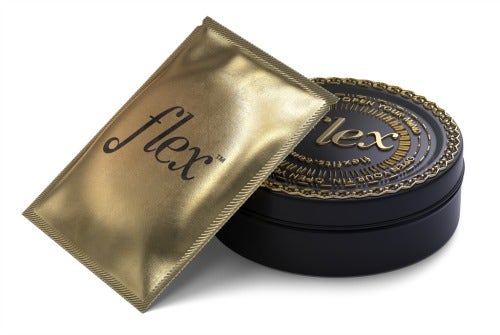GENIUS: There's Now A Tampon You Can Wear *While* You Have Sex
Here's to mess-free period sex!
 Jacob Lund/ShutterStock
Jacob Lund/ShutterStock Some women absolutely adore having sex on their period. Having sex while you're menstruating can help with menstrual pain or make you feel especially aroused during your time of the month.
In the past, you could spread some towels around or use a mooncup to help with the messiness, but now there's a new tampon you can use instead.
The San Francisco start-up, The Flex Company, has developed a tampon that lets women experience mess-free sex during their period.
The tampon is shaped like a curved disc and works much like the mooncup; it's worn inside the vagina during menstruation. Flex fits against the cervix and creates a soft barrier that temporarily blocks the menstrual blood.
Like a tampon it's disposable, but unlike the tampon it can be worn for up to 12 hours — four hours longer than the recommended time for most tampons. Wearing a regular tampon during sex can be very harmful to your health, so this new design is pretty revolutionary.

"Flex is so shockingly comfortable that women tell us they forget they're on their period while they're wearing it," CEO Lauren Schulte said during a pitch at Y Combinator's Fellowship Virtual Demo Day. "We've built a product that allows couples to increase their opportunity to have sex by 23 percent. The great tragedy of people avoiding sex on their period is that this really is the time when women want it most."
You can preorder Flex now and they'll begin shipping in the fall. The company hopes to eventually sell Flex in stores.

Photos: flexfits
"Flex is a revolutionary device that is changing the way women think about their menstruation. Unlike other feminine products, Flex conforms to any woman's body making it the most comfortable product on the market. It's safe, easy to use, BPA-free and hypoallergenic, and is not associated with TSS [Toxic Shock Syndrome]," says Dr. Jan van Dis on the website.
